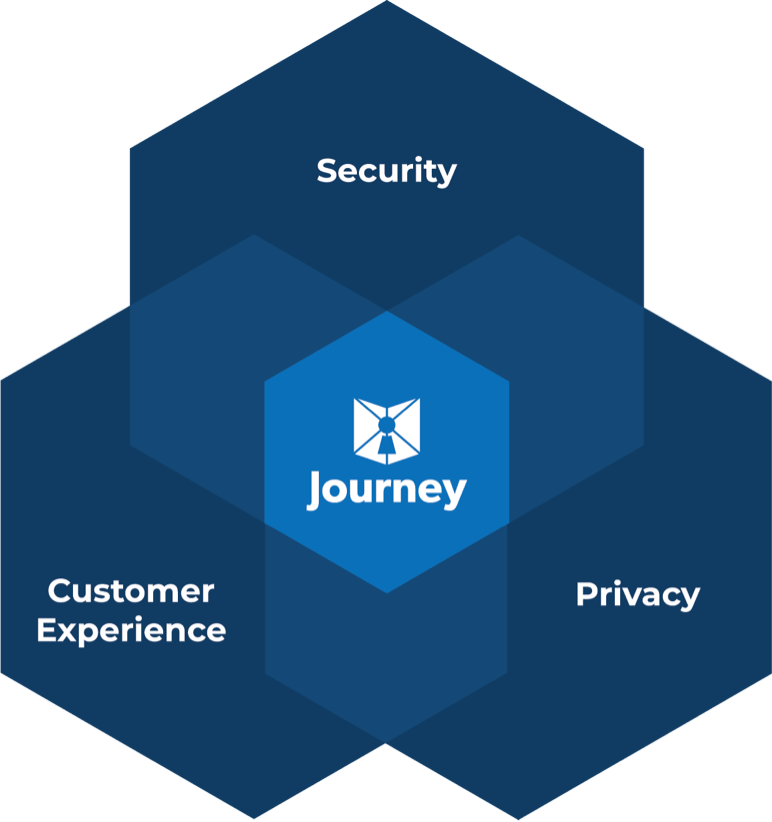If you had to guess, how many times a day would you say you log into an account? You log into your email in the morning, log into social media to check what’s happening with your friends, log into your bank account to check if you have enough money to buy coffee in the Starbucks app you’re about to log into.
There’s a good chance you also log into Zoom for a work meeting, where you log into your company portal to get access to client information before logging into a file transfer protocol site to send that information to a coworker.
Each time you log into an account, you probably enter a password or answer security questions. But did you know these forms of digital security aren’t actually all that secure? Read on to learn about why you’ll soon be kissing those security questions goodbye and moving to a new, safer form of digital security.
What Is Knowledge-Based Authentication?
Knowledge-based authentication (KBA) is the form of digital security we’re most familiar with. These systems use passwords, PIN numbers, and other specific login information to give you access to an account. In some cases, you may have two-factor authentication that asks for a password and a security question or PIN number.
We see KBA systems in nearly every area of our lives, from our devices to our bank accounts. We use passwords to access our Netflix accounts, our amazon shopping carts, and our dating apps. We pay our mortgages, view our medical records, access our school information, and share our lives through social media on platforms that use KBA systems.
The Problem with Passwords
Raise your hand if you’ve ever forgotten a password and had to reset it or look it up. We’ve all done it, and it’s one of the things that makes KBA systems so annoying. We have so many different accounts that it’s impossible to remember the passwords for all of them.
But the real problem with KBAs is that they aren’t actually that secure. Hackers can run computer programs that can guess passwords a thousand times over or snake into your browser and swipe that information. Even supposedly secure passwords that use all those capital letters, special characters, and numbers are simple for a computer that can perform two billion operations a second.
The way we use KBAs makes us even more vulnerable to attack. Many of us store our passwords in automated management systems that could be attacked, leaving all of our information vulnerable. And because we tend to use variations on the same password to make it easier to remember, if a hacker gets one password right, there’s no telling how much they could get into.
The Problem with Security Questions
Okay, we hear you saying, so my passwords aren’t safe because a computer can guess them. Why not back them up with security questions? After all, no one is going to know the name of your first pet or where you were when you heard about 9/11, right?
Well, the first problem with security questions is that 30 percent of the time, the actual person who’s supposed to be answering them gets them wrong. And then you know all those fun Facebook games that ask you to find your stripper name by combining the name of the street you grew up on and your first pet’s name? Any time you answer those, you’re putting security question answers out for hackers to grab.
How Biometrics Work
So, if you can’t use a password or a security question to keep your private information safe, how do you go about protecting yourself? The answer is quite literally at your fingertips and in front of your eyes. Biometrics are the digital security method of the future, and we’re already seeing examples being used today.
Biometrics take a scan of some unique piece of you like your fingerprint or your face. Some more advanced digital security systems can even scan your retina, which is completely unique to you. They compare this against a record they have stored and, if the two match, you’re granted access to your account.
Why They’re Safer
It’s not hard to guess why biometrics are safer than any string of letters and numbers could be. There are billions of people on the planet, and no two of us have the same fingerprint. Identical twins may have the same face, but even then, one may have longer hair or a beard.
Biometrics are impossible for hackers to duplicate to gain access to your records. And the physical requirement of logging in keeps things more secure, too. You must be physically there, unlocking your data with your body, rather than a hacker a thousand miles away being able to replicate a few keystrokes on your computer.
What Methods We Use
Here at Journey, we are dedicated to keeping you and your private information safe. We use the biometric sensors already available through your smartphone. Older model iPhones have fingerprint ID pads that can provide access, and newer models use a face scan that’s impossible to duplicate.
In some cases, we also use private information that would never be found on the internet to verify your identity. You may be asked to enter some piece of identifying information like a social security number to log into your account. None of our agents ever see that information, so only you and our computers will know you entered the right number.
Discover the Security Methods of the Future
As our lives move more and more online, data security becomes ever more important. Passwords, PINs, and security questions are too vulnerable to hacking to provide the protection you need. That’s why, in the coming years, you’ll see biometrics come to the forefront of the digital security world.
If you’d like to find a smarter, safer way to manage digital identities, check out the rest of our site at Journey. We solve for security, privacy, and customer experience with no tradeoffs. Contact us today and start making sure you know your customers, not their mother’s maiden name.



